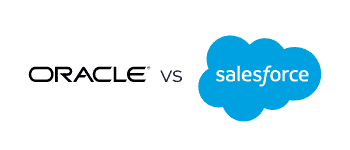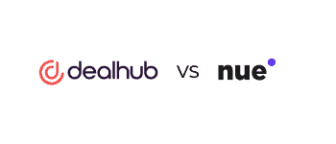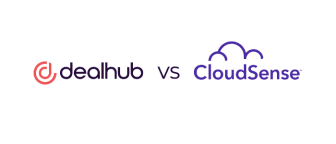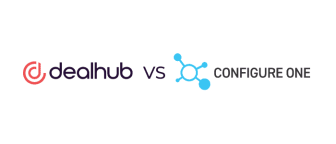Introduction
Compare Oracle CPQ and Salesforce CPQ
Oracle and Salesforce are high-profile cloud software providers offering solutions for businesses of all sizes. Their Configure Price Quote (CPQ) applications allow sales teams to quickly create accurate and dynamic pricing quotes and professional proposals.
Oracle has been around since 1977 and provides a wide range of business software solutions, including ERP, HR, and CRM. Oracle CPQ is a cloud-based quoting and configuration system that helps users streamline the process of creating quotes, generating sales proposals, and invoicing customers. As part of the Oracle platform, it is designed to be used with other Oracle products and integrates with other leading CRM systems.
Salesforce is the industry leader in cloud-based CRM software, with a user base of over 150,000 customers in more than 175 countries. Salesforce CPQ is its quoting and configuration system that helps users create quotes, proposals, and invoices quickly and accurately. Salesforce CPQ is available as a standalone product but is also built into Revenue Cloud, which offers end-to-end revenue management for businesses of all sizes.
Product overview
Overview of each CPQ Solution
Just as Salesforce and Oracle have wide ranges of customers for their ERP, CRM, and other products, Oracle CPQ and Salesforce CPQ have user bases that span multiple industries. Both solutions offer a range of features for creating quotes and managing customer relationships.
Define Oracle CPQ
Oracle CPQ is designed to help sales teams close deals efficiently. By connecting with Oracle’s CRM and ERP solutions, it enables an end-to-end quote-to-cash (QTC) management system that streamlines the revenue cycle and facilitates efficient order orchestration.
Oracle is an ideal CPQ solution for large businesses that want to create, customize, and finalize purchase orders easily. With its integrated intelligence, sales teams can develop customized proposals, contracts, and documents tailored to their customers’ needs. Oracle CPQ also offers real-time product configurations that make it faster than ever for teams to deliver optimal customer experiences.
Define Salesforce CPQ
Salesforce CPQ is a configure, price, and quote solution native to the Salesforce ecosystem. Like Oracle CPQ, it streamlines complex sales processes to increase efficiency while automating quoting and invoicing.
Because it is native to the platform, existing Salesforce customers can easily integrate it into their existing setup. Salesforce CPQ also has built-in analytics, enabling users to monitor performance and understand customer behavior in real time.
Salesforce is one of the most customizable platforms for enterprise businesses with sizable IT infrastructure and resources. The CPQ system can be customized to meet the specific needs of each business, including its sales process, product catalog, and pricing model.
Product features
Comparison of Key Features
Oracle CPQ and Salesforce CPQ offer powerful features for streamlining the quoting process, but they cater to different business needs.
Oracle CPQ is designed for large enterprises with complex sales processes, providing advanced pricing and discounting capabilities, guided selling tools, and scalability for highly configurable products. It integrates seamlessly with Oracle’s ERP and CRM systems and supports AI-driven pricing optimization.
With both cloud and on-premises deployment options, Oracle CPQ is ideal for businesses that require deep integration with enterprise applications and robust configuration capabilities.
Salesforce CPQ, on the other hand, is built for companies using Salesforce CRM and offers a more user-friendly, automated quoting experience. It provides seamless native integration with Salesforce, ensuring data consistency across sales, marketing, and service teams.
The platform simplifies the quoting process with pre-configured templates, automated pricing adjustments, and subscription and renewal management for SaaS businesses. Salesforce CPQ also includes customizable approval workflows, AI-powered deal insights through Salesforce Einstein, and an intuitive interface that makes it ideal for growing companies looking to enhance sales efficiency.
Choosing the right CPQ solution depends on business needs. Oracle CPQ is best suited for enterprises that require advanced configuration capabilities and deep ERP integration, while Salesforce CPQ is ideal for businesses already operating within the Salesforce ecosystem and seeking a streamlined, subscription-friendly solution.
Here’s an overview of how Oracle CPQ and Salesforce CPQ stack up against one another in terms of features:
| Oracle CPQ | Salesforce CPQ |
|---|---|
| A centralized platform for managing sales, billing, and purchase order touchpoints within a company’s current ERP and CRM. | Configure complex product combinations with the same user interface as other Salesforce products. |
| Integration with any CRM and ERP solution, not just a partner network. | Provide real-time insights into customers, deals, and prospects through its integration with Salesforce’s CRM platform. Extended integrations through the Salesforce partner network. |
| Long IT implementation, especially if a user is not an existing Oracle customer. | IT implementation takes an average of 6-9 months. |
| Product-specific guided selling rules ensure sellers match the right product configurations and pricing rules with their customers. | Salesforce offers pre-built guided selling capabilities, but more intricate workflows may require custom coding. |
| Scalable with additional implementation, investment costs, and potential consulting. | Modifications, alterations, and upkeep often require specialized expertise—incurring additional expenses. |
| Send digital proposals, price quotes, and other documents for approval, signature, or review through the Oracle client portal. | Each price quote is delivered as an attachable file, and any alterations necessitate a new version of the document. |
| All CPQ product features available in one plan. | Additional features and licenses available for added costs. |
| Sales negotiations happen in the Oracle client portal and continue in integrated software. Partners can configure their own products on the client portal. | Customer communication within the Salesforce platform and its partners (like Slack). |
| Automated discounting and pricing for even the most complex purchase orders. | Subscription management and complex billing capacity. |
| Sales channel quotation and activity insights and statistics to improve sales cycle visibility for management and executive leadership. | Detailed reporting analytics for customized pricing strategies and discount structures. |
| Full-cycle quote-to-cash automation when integrated with Oracle CRM and ERP. | Full-cycle quote-to-cash automation with Revenue Cloud. |
| Web-based platform. | Web and mobile (iPhone and Android) platforms. |
| Knowledge base Email + help desk 24/7 live chat (live rep) FAQs + forum Phone support Live online support VideosIn-person training Documentation Live and recorded webinars | Phone support Knowledge base ChatFAQs/Forum Live online support In-person training Documentation |
Customer size
Ideal Customer Profiles
Companies across verticals and of varying sizes use the platforms to increase sales efficiency and accelerate their sales cycles.
However, enterprise organizations will get the most out of these products. Deep insights, customization, and automation in a legacy user interface can help larger organizations improve customer engagement, cut costs, and increase sales.
Beyond this, organizations that get the most out of their respective platform will use the company’s other products and partner providers as well. Oracle users, for example, will benefit from integrating with Oracle ERP, Customer Experience (CX) Suite, and other solutions. Salesforce customers will get the most bang for their buck if they use Salesforce’s other products, such as Commerce Cloud, Sales Cloud, Marketing Cloud, and Revenue Cloud.
Pricing
Breakdown of Pricing Options
Oracle CPQ and Salesforce CPQ both offer straightforward pricing modules. Each offers custom pricing solutions on a usage basis for additional services, but the core product remains the same.
The cost of Salesforce CPQ is variable, but ranges between $75 on the low end and $150 on the high end. To integrate other features (such as billing, e-sign, and other Revenue Cloud offerings), users pay for extra licensing on an individual basis.
Oracle CPQ, on the other hand, is priced per user and comes with pre-built templates for common use cases such as lead management, product pricing, and billing. The cost is $240 per user per month but requires no additional licenses for other products.
| Oracle CPQ | Salesforce CPQ | |
|---|---|---|
| Product Pricing | $240 per user per month | CPQ: $75 per user per month (billed annually) CPQ Plus: $150 per user per month, billed annually CPQ + Billing Growth: Contact sales CPQ + Billing Plus: Contact sales |
| Implementation Fees | Ongoing IT costs with business scalability | Ongoing implementation fees for custom coding |
| Additional Licenses | Additional license fees only for other Oracle software platforms (e.g., CRM, ERP, etc.) | Additional license fees for e-sign, contract management, buyer engagement tracking |
It’s important to note that additional IT consulting, implementation, and ongoing maintenance will be required in both cases. Businesses should prepare to invest in their respective platform when getting started, especially Salesforce users adding microservices to their tech stack.
Summary
Considerations for Choosing Between the Two Solutions
When comparing Oracle CPQ and Salesforce CPQ, businesses should evaluate their existing technology stack, sales process complexity, and integration needs. Oracle CPQ is a strong choice for large enterprises that require advanced configuration capabilities, complex pricing models, and deep integration with Oracle ERP and other enterprise systems. It is particularly well-suited for industries such as manufacturing and high-tech, where intricate product configurations and multi-tier pricing structures are common.
Salesforce CPQ, on the other hand, is ideal for organizations already using Salesforce CRM. Its seamless native integration ensures a unified sales process, making it a great option for companies looking for a more user-friendly and automated quoting solution. Businesses with recurring revenue models, such as SaaS and subscription-based companies, may also benefit from Salesforce CPQ’s built-in tools for managing renewals and contract modifications.
Ultimately, the decision depends on the complexity of your business’s quoting and how well the CPQ solution integrates with existing systems.
FAQs
Frequently Asked Questions
The key differences between Oracle CPQ and Salesforce CPQ lie in their integration capabilities, target users, and complexity. Oracle CPQ is designed for large enterprises with complex sales processes. It offers advanced product configuration, dynamic pricing, and deep integration with Oracle ERP and other enterprise applications. It is ideal for manufacturing, high-tech, and B2B services that require intricate quoting and approval workflows.
Salesforce CPQ, on the other hand, is built specifically for businesses using Salesforce CRM. It provides a seamless, user-friendly quoting experience with automated approvals, subscription management, and AI-driven pricing recommendations.
Tens of thousands of businesses use both Salesforce and Oracle for a variety of users, both large and small. The best choice for you really depends on your need, budget, and infrastructure. Salesforce and Oracle generally suit the same customer segments, but it is important to research multiple software vendors before committing to the long implementation and setup of any one.
Oracle is a PaaS (Platform-as-a-Service) offering. This means that users pay for access to Oracle’s cloud infrastructure, which can then be used to host various applications and services. PaaS solutions often provide additional benefits such as scalability, security, and automation features. Oracle CPQ is an example of a SaaS service offered by Oracle, allowing customers to quickly and easily configure pricing and quoting for their business.
Oracle is a highly scalable database solution, which is what many large organizations need to store and manage their data. Oracle’s Relational Database Management System (RDBMS) is also known for its high performance, security, and reliability—all of which are essential for large companies that need to process massive amounts of data. Additionally, Oracle offers various cloud services, such as Oracle CPQ, that simplify pricing and quoting operations for complex businesses.
Salesforce CPQ is hosted within Sales Cloud, but is not a part of the core product. Salesforce’s CPQ solution is designed to complement existing tools and help sales teams automate quote generation, pricing and discount management, and order processing. It also helps streamline approval processes for larger transactions.

Rhonda Bavaro excels in boosting SaaS companies’ growth through innovative content marketing, thriving in the dynamic sales tech industry amidst evolving technologies that drive revenue acceleration.








